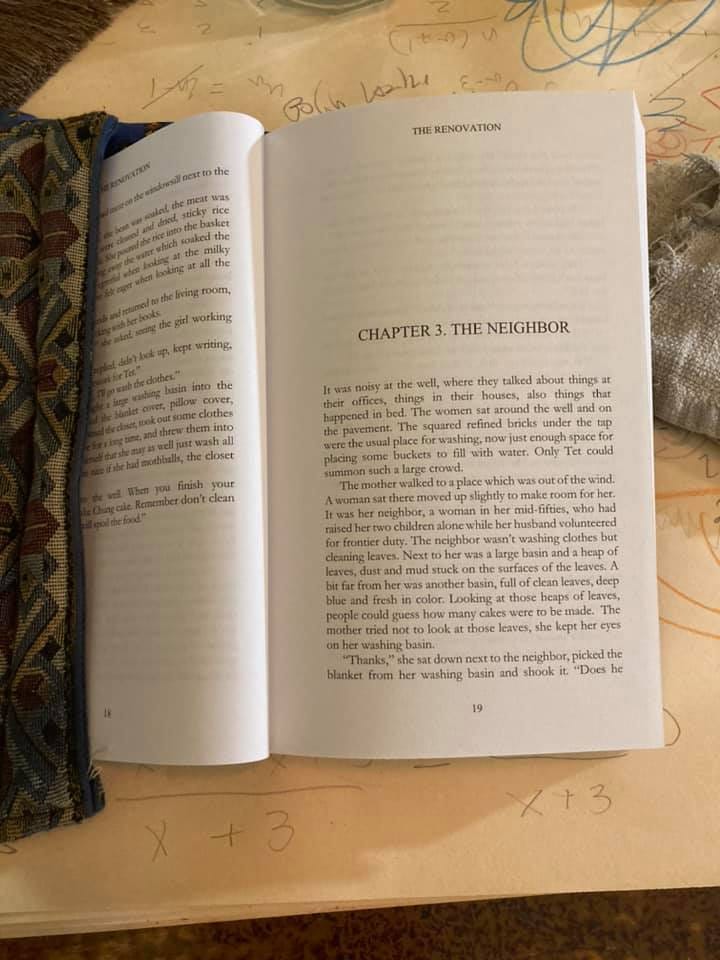In 1975 the People’s Army of Viet Nam took Saigon. The Democratic Republic of Viet Nam unified the nation in 1976 as the Socialist Republic of Viet Nam.
PAVN remained mobilized, the world’s fourth largest infantry by head count, and a good thing too. They fought off the People’s Army of China, the Khmer Rouge, and their ally the United States in 1979.
The Vietnamese Communist Party already had failed to collectivize the farms of the Mekong delta. Everyone could have starved to death but PAVN united the people to share and share alike while improvising a free economy.
Nearly everyone went hungry and almost no one perished of hunger, thanks to the idealists, while the powerful abused privilege and the realistic began building another world.
Do Hoang Ngoc Anh explains none of this past. The author lived it as a child born in 1980, and relates that present in these opening chapters of The Renovation in terms of a girl and a boy cooking a banh chuong for Tet in the cold promise of a new year.
The author writes an expressive and nuanced Southeast Asian English, practiced later doing business in Malaysia, where the British had succeeded in protecting the anti-Communists among the anti-colonialists because they could cut the peninsula off from the People's Republic of China and the Union of Soviet Socialist Republics.
While these children of the novel cook the New Year’s cake, in life prime minister Nguyen Van Linh was moving toward his call to writers to advise the nation and the people by honest reporting and imaginative stories. One author who had fought through the war, Le Luu, had already stepped forward, as did the ethnographic film-maker Tran Van Thuy.
The novelist Duong Thu Huong came out both barrels blazing with deadly contempt for the blind, deluded fools who had blighted everyone’s lives. Those are some famous authors of doi moi, the renovation.
Do Hoang Ngoc Anh is not so weary as Le Luu or angry as Huong. This younger author is rather sweet and accepting, like Thuy, rooted in the life of the people for good and ill, like the late Nguyen Huy Thiep.
At least so far. I have read only 3 chapters but look forward to more. Many of my friends in Viet Nam are the author’s age, so the story pulls me like the sea toward what Le Luu called a time far past.
Warmly recommended. More thoughts another time on the next few chapters.
This was the second of 10 Viet Nam letters so far about The Renovation by Do Ngoc Hoang Anh. The first appeared on February 16, 2022, the third on March 12, 2022, then the fourth on April 2, 2022 and the fifth on May 2, 2022.
The sixth appeared on on June 4, 2022, the seventh on July 16, 2022, the eighth on September 10, 2022, and the ninth on September 14, 2022.
The tenth, on May 29, 2023, was also the first and only Viet Nam letter so far about Đổi Mới by Đô Hoàng Ngọc Ánh.
Viet Nam letters respects the property of others under paragraph 107 of United States Code Title 17. If we asked for permission it wouldn’t be criticism. We explain our fair use at length in the letter of September 12, 2022.
.




